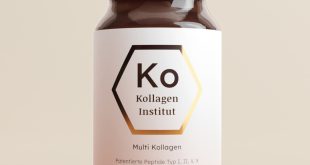Just like carbohydrates, proteins, and vitamins, minerals are also important for the growth, development, and health of your body. Your body needs minerals to perform several functions such as strengthening your bones, transmitting nerve impulses, making hormones, regulating heartbeat, and also boost immunity.
Two types of minerals are mainly required for the proper functioning of your body. These are:
- Macrominerals
- Microminerals (Trace Minerals)
Despite being extremely important for the body, trace minerals must be consumed in tiny doses to enjoy complete benefits. These are essential minerals that you consume from the foods you eat or drink. It’s better if you limit the intake of trace minerals from .2 to 15 milligrams. If consumed at high levels, trace minerals can give more harm than benefits to your health.
Common Trace Minerals Essential for your Body
Here is a rundown of the common trace minerals your body needs:
1. Zinc
Your body stores zinc in several enzymes that are essential for the production of protein and genetic material. It also plays a vital role in reproduction, fetal development, boosting the immune system, wound healing, and neurological functions.
You might experience delayed puberty or small stature due to zinc deficiency.
2. Iron
Iron is the only trace mineral that should be consumed at slightly high levels than the others. This is because iron is crucial for the production of haemoglobin in the red blood cells. It is also an important part of different enzymatic reactions and plays a vital role in the immune system and normal energy metabolism. Additionally, if you’re an active consumer of drugs then your body needs iron for the metabolism and removal of foreign substances.
Teenage girls and women of childbearing age are recommended to consume iron in higher quantity than men. However, lower amounts of iron in the body can lead to iron deficiency anaemia.
3. Copper
After iron and zinc, copper is the third most plentiful nutritious trace mineral. It is a part of several enzymes and helps your body produce red and white blood cells. You also need copper to utilize iron efficiently and is believed to be crucial for growth, development, strengthening bones, and the immune system.
Copper deficiency is not pretty common as it can be consumed from various dietary sources. However, a rare hereditary disorder called Menke’s disease makes the absorption of copper hard for the body and thus results in acutely impaired mental development, skeletal and vascular problems, and failure to keratinise.
4. Manganese
Manganese is a great source of bone formation and energy metabolism. It is also a component of an antioxidant enzyme that helps prevent your body from free radical-mediated damage to cells.
Here is a piece of good news for you, i.e., manganese deficiency is extremely rare and its toxicity isn’t really an issue since blood levels are carefully controlled.
5. Iodine
Thyroid problems are becoming more common among people. If you’re also the one suffering from such issues then iodine can be the ultimate solution. It is beneficial for thyroid hormone, triiodothyronine, and thyroxine. These three are the body’s essential regulators of metabolic rate and enhances your physical and mental development.
Iodine deficiency is a common issue around the world. If you’re iron deficient, you might notice lethargy and swelling of the thyroid gland present in your neck which makes a goitre. Infants of extremely iron deficient mothers are mentally disabled (cretinism).
6. Flouride
Fluoride helps your body in the mineralisation of teeth and bones. It also acts as a protective layer and prevents teeth from dental caries (tooth decay). This is the reason why most toothpaste manufacturers now add fluoride to the tubes.
You might develop fluorosis if consume large amounts of non-dietary fluoride which is, however, highly rare.
7. Selenium
Selenium plays a major role as a constituent of some essential antioxidant enzymes and is a great source of protecting your body against oxidative damage. It also regulates the use of iodine in the production of thyroid hormone, the immune system, and reproductive functioning.
Selenium deficiency can lead to Keshan disease, whereas, its high doses might cause selenosis.
8. Chromium
Chromium is beneficial to promote the action of insulin – a hormone that controls blood glucose levels. An adequate dietary intake of chromium helps your body improve control over blood glucose and an enhanced blood lipid profile.
Chromium deficiency leads to impaired glucose tolerance which, however, can be removed with chromium supplementation.
Sources and RDA of Trace Minerals
The table below illustrates the dietary sources and RDA of trace minerals:
| Trace Minerals | RDA (Recommended Daily Allowance) | Dietary Sources |
| Zinc | For men: 11 mg For women: 8 mg | Vegetables, meat, poultry, fish, some grains, cereals, nuts, and pulses |
| Iron | For men: 8 mg For women: 18 mg For Pregnant women: 27 mg | Enriched bread and cereals, meat, whole grains, nuts, poultry, beans, legumes, dried fruits, and leafy greens |
| Copper | 800 micrograms | Fruits, organ meat, beef, vegetables, nuts, whole grains, water, and beans |
| Manganese | For men: 2.3 mg For women: 1.8 mg | Tea and other foods – mainly plant foods |
| Iodine | 150 micrograms | Dairy products, seafood, bread, foods grown in iodine-rich soil, and iodized salt |
| Fluoride | Places with fluoridated water: 1.4 – 3.4 mg Places without fluoridated water: 0.3 – 1 mg | Drinking water, fish, and some teas |
| Selenium | 55 micrograms | Seafood, grains, meat, eggs, and bread |
| Chromium | Experts aren’t yet sure about the RDA of chromium | Cereal grains, nuts, molasses, and meat |
Bottomline
Just like macro minerals, trace minerals are also important for the growth and development of your body. However, the main difference is that microminerals are consumed in small amounts, whereas, your body requires high levels of macrominerals. It’s important to acknowledge the RDA and sources of trace minerals before deciding to consume any of them.
Thanks For Reading
More Read On Thecareup
 The Care Up
The Care Up




